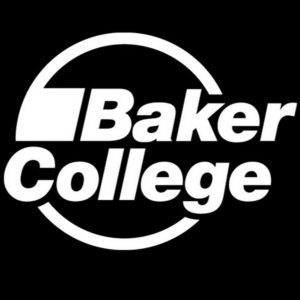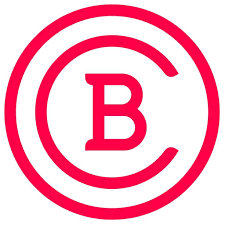
Career-Focused Academics at Baker College
Baker College appears in our ranking of the 25 Best Bachelor’s in Engineering Online Degrees. Baker College is split into six schools with an 84.9 percent employment rate. It chooses vocational training over the liberal arts for its 32 associate and 24 bachelor’s degrees. For example, the Food and Beverage Management A.A.S. in Muskegon or Port Huron cooks up 60 credits on restaurant operations. The 63-credit, NKBA-accredited Interior Design A.A.S. opens entry-level jobs creating residential or commercial spaces. The Mechanical Engineering B.S. adheres to ABET standards for 120 credits innovating the latest machinery. The 120-credit Game Software Development B.S. integrates courses from Java Programming to Artificial Intelligence. Other Baker programs with the 19:1 student-faculty ratio include:- Finance B.B.A.
- Radiation Therapy B.S.
- Secondary Teacher Preparation B.S.
- Mechatronics A.A.S.
- Paralegal Studies A.A.S.
- 17 master’s
- one doctoral
- 13 post-baccalaureate
- Business Administration D.B.A.
- Educational Leadership M.S.
- Industrial/Organizational Psychology M.S.
- Human Resources M.B.A
About Baker College
Baker College was established in 1911 by Eldon E. Baker for practical, business education. Buying out Muskegon College in 1965, Baker grew and adopted a nonprofit model. It was accredited in 1985. It granted the first Bachelor of Business Administration the next year. By the 1990s, Baker College started branching off from Flint Township home by acquiring properties like the Pontiac School. It’s known for winning the 2008 National Collegiate Cyber Defense competition. Baker now serves over 43,000 students from 50 states. Baker College was ranked in the top 200 engineering schools by the U.S. News & World Report. Baker is also America’s 46th best business university on College Factual and 546th top college in Washington Monthly.Baker College Accreditation Details
In December 2012, Baker College underwent a comprehensive evaluation by the Higher Learning Commission of the North Central Association (HLC-NCA). This was to renew its Level V accreditation for another 10 years. This regional agency in Chicago has authority to determine Federal Title-IV eligibility for Baker’s 20 Michigan locations. Academic programs have also been reaffirmed by the following:- International Accreditation Council for Business Education (IACBE)
- National Association for Education of Young Children (NAEYC)
- Council for the Accreditation of Educator Preparation (CAEP)
- Accreditation Board for Engineering and Technology (ABET)
- National Kitchen and Bath Association (NKBA)
- Commission on Accreditation of Allied Health Education Programs (CAAHEP)
- Committee on Veterinary Technician Education and Activities (CVTEA)
- Commission on Dental Accreditation (CODA)
- National Commission of Orthotics and Prosthetics Education (NCOPE)
- American Culinary Federation Education Foundation Accrediting Commission (ACFEFAC)
- Commission on Accreditation in Physical Therapy Education (CAPTE)
- Commission on Accreditation for Respiratory Care (CoARC)
- National Accrediting Agency for Clinical Laboratory Sciences (NAACLS)
- Council for Standards in Human Service Education (CSHSE)
- Commission on Collegiate Nursing Education (CCNE)
- Accreditation Council for Occupational Therapy Education (ACOTE)
- Commission on Accreditation for Health Informatics and Information Management (CAHIIM)
- National Alliance of Concurrent Enrollment Partnerships (NACEP)
Baker College Application Requirements
Getting into Baker College in Flint is deemed “minimally difficult” by Peterson’s for the Fall 2016 acceptance rate of 100 percent. All first-year applicants who’ve finished a high school diploma or passed the GED with a 2250 or higher are admitted. There’s no minimum GPA, but the average is 2.8. Healthcare majors require a “C” average or better though. Entrance exams are wholly optional with accepted freshmen presenting mean scores of 17 on the ACT and 910 on the SAT. Transfers can carry up to 90 credits into bachelor’s and 12 credits into graduate programs. Classes graded “B” or better are considered from accredited colleges. The Center for Graduate Studies asks for four-year bachelor’s completion with a minimum 2.5 GPA in the last 60 units, but no GRE/GMAT scores. Baker College has a rolling, open-enrollment admission policy to ensure no pesky deadlines. Anytime year-round, interested students can submit the Enrollment Application securely online with Formstack. If needed, the Midwestern Higher Education Compact (MHEC) member will accept extra papers to 1116 West Bristol Road in Flint, MI 48507. Counselors are available to assist at (855) 487-7888 or GetEnrolled@baker.edu. Enter Baker’s modern, innovative classrooms by sending the following:- $30 application fee ($35 for graduate)
- Official high school and college transcripts
- Current professional résumé or CV
- 500- to 1,000-word career goals essay
- Any other chosen supporting evidence
Tuition and Financial Aid
Most Baker College undergrads pay $390 per credit. Active-duty military and reserve members receive a discount to $247 per credit. There are some exceptions, such as these rates:- $475 Dental Hygiene
- $460 Nursing
- $415 Polysomnographic Technology
- $405 Electronic Health Records
- the Barnes & Noble Scholarship
- Dean’s Scholarship
- Dianne Addington Scholarship
- George W. Hoddy Scholarship
- Frederick & Dorothy Baker Scholarship
- Graduate Studies Scholarship
- Taylor/Graystone Scholarship
- Michigan Tuition Grant
- Fostering Futures Scholarship
- Children of Veterans Tuition Grant
- Competitive Scholarship money
Featured Programs
Related Resources:
30 Best Online Bachelor’s in Psychology Programs at Private Colleges
30 Most Affordable Bachelor’s in Finance Online at Private Colleges
30 Most Affordable Online Bachelor’s in Business Administration at Private Colleges
50 Most Affordable Online Degree Programs For In-State Students
